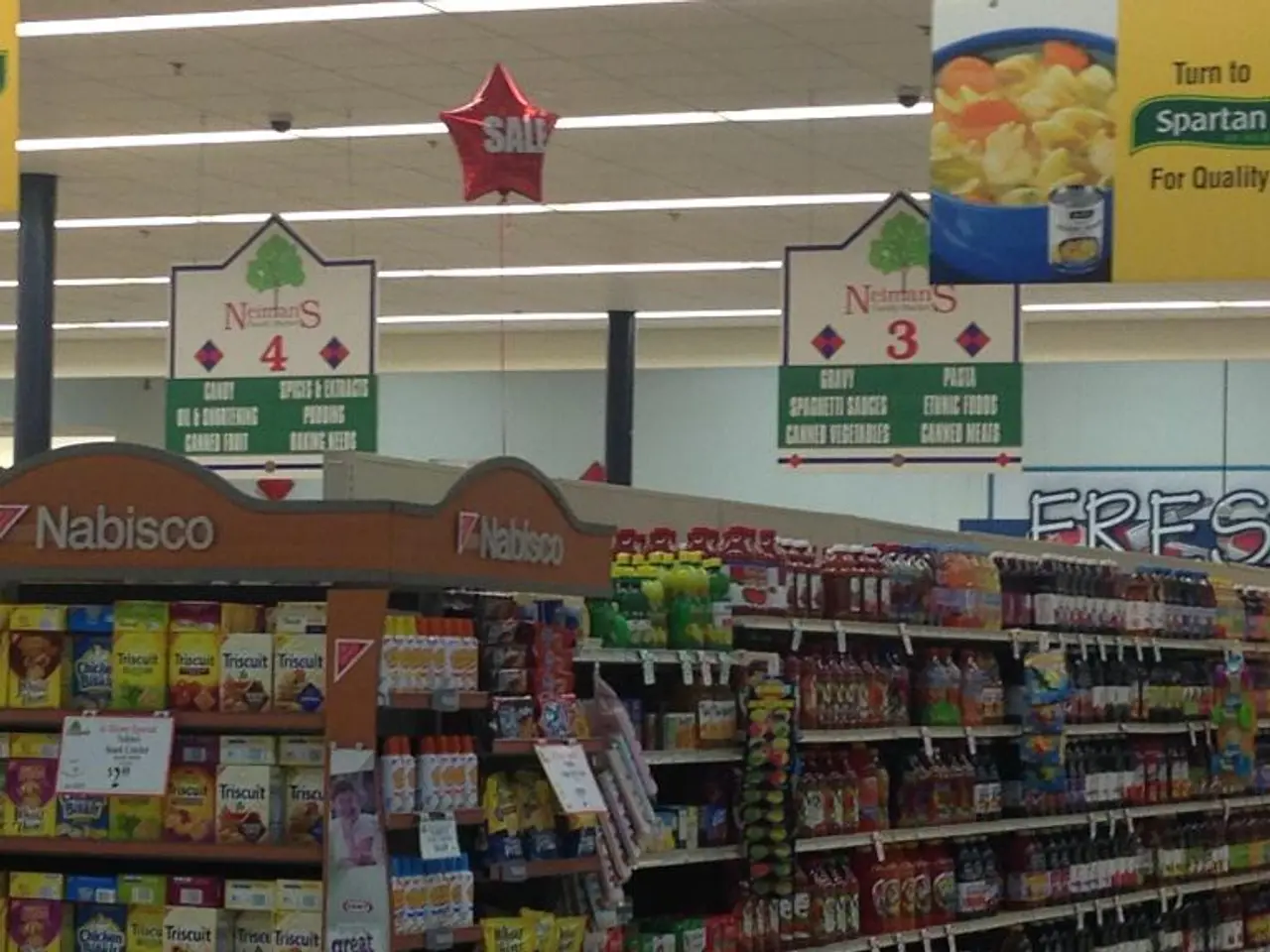Surge in Digital Sales by 40% During Dubai Summer Sale accompanied by an Increase in Cross-Border Orders
In the heart of the Middle East, the UAE's e-commerce market is experiencing a significant surge, with the Dubai Summer Sale playing a pivotal role. This digital shopping event, now worth over $8.80 billion, has become a major competitor to Black Friday, attracting consumers from various categories.
Home & Garden (19%) and Electronics (18%) follow as popular categories, with consumers focusing on lifestyle upgrades and tech essentials. Interestingly, these categories are also among the leading choices in the UAE, where Electronics (17%) and Home & Garden (14%) remain popular. The broadened focus is also reflected in increased spending on Car Products (11%) and Toys & Hobbies (7.5%).
The Dubai Summer Sale is not just driving local spending but also cross-border gifting and mobile-first purchases. The number of orders during the summer increased by 12%, while GMV rose by 21%. Europe accounted for 65% of all UAE visa requests in Q2, highlighting a strong seasonal trend of UAE residents traveling abroad during the summer.
Mobile commerce kept growing in MENA, with the share of purchases made on mobile devices increasing from 39% to 40% in the summer. Approximately 60% of UAE consumers have made at least one online purchase from an international retailer, with over 80% buying from international websites via global e-commerce platforms like Amazon and AliExpress.
The growth in cross-border gifting during the summer season of 2024 saw a 20% increase in demand. Leading countries in cross-border gifting include the United Kingdom (17%), the United States of America (15%), Russia (12%), Saudi Arabia (10%), Germany (5%), France (5%), the Netherlands (4%), Kazakhstan (4%), Spain (4%), Turkey (4%), Italy (3%), and several others.
Flowers (60%), cakes and bakery products (15%), edible bouquets of strawberries (5%), balloons (4%), and houseplants (3%) became the leaders of gifting orders in the UAE. Fashion leads the way in Summer 2024 shopping data across the MENA region, accounting for 21% of total purchases.
The average order value in the UAE during the summer season increased from $69 to $75. The merchandise revenue for the Dubai Summer Surprise 2024 campaign grew by 15%. International travel bookings by UAE residents surged by 35% in July and August 2024 compared to the previous year.
Analytics forecast a further 15% rise in online orders for the Dubai Summer Surprise 2025. The strong mobile commerce contribution shows in both the volume of purchases made on phones and the anticipated further increase in mobile order share in 2025. Smartphones contributed 79% of 2024 sales in the UAE e-commerce market, and this share is projected to increase by another 10% in 2025.
The Dubai Summer Sale is expected to be a new Black Friday for the summer months in the UAE, with online orders during the Dubai Summer Surprise 2025 expected to grow by approximately 15% compared to the previous year.
[1]: Source 1 [2]: Source 2
- Home & Garden (19%) and Electronics (18%) are popular categories in the UAE's e-commerce market, attracting consumers seeking lifestyle upgrades and tech essentials.
- In the UAE, Electronics (17%) and Home & Garden (14%) remain among the leading choices, while Car Products (11%) and Toys & Hobbies (7.5%) have seen increased spending.
- In Q2, Europe accounted for 65% of all UAE visa requests, indicating a strong seasonal trend of residents traveling abroad during summer.
- Mobile commerce in MENA increased, with 40% of purchases made on mobile devices during the summer.
- Over 80% of UAE consumers have purchased from international websites via global e-commerce platforms like Amazon and AliExpress.
- During the summer season of 2024, flowers, cakes, edible strawberries, balloons, and houseplants were the leading gifting orders in the UAE.
- Fashion leads the Summer 2024 shopping data across the MENA region, accounting for 21% of total purchases.
- Sales through smartphones contributed 79% of the UAE e-commerce market in 2024, and this share is projected to increase by another 10% in 2025, highlighting the growth of mobile commerce. [1]: Source 1 [2]: Source 2




